Nestled in the heart of Jackson, Mississippi, Greenwood Cemetery is a storied burial ground that holds the remains of notable historical and literary figures dating back to the early 19th century. Founded in 1823, Jackson’s oldest resting place was simply called City Cemetery at that time with its name changing to Greenwood in 1899.
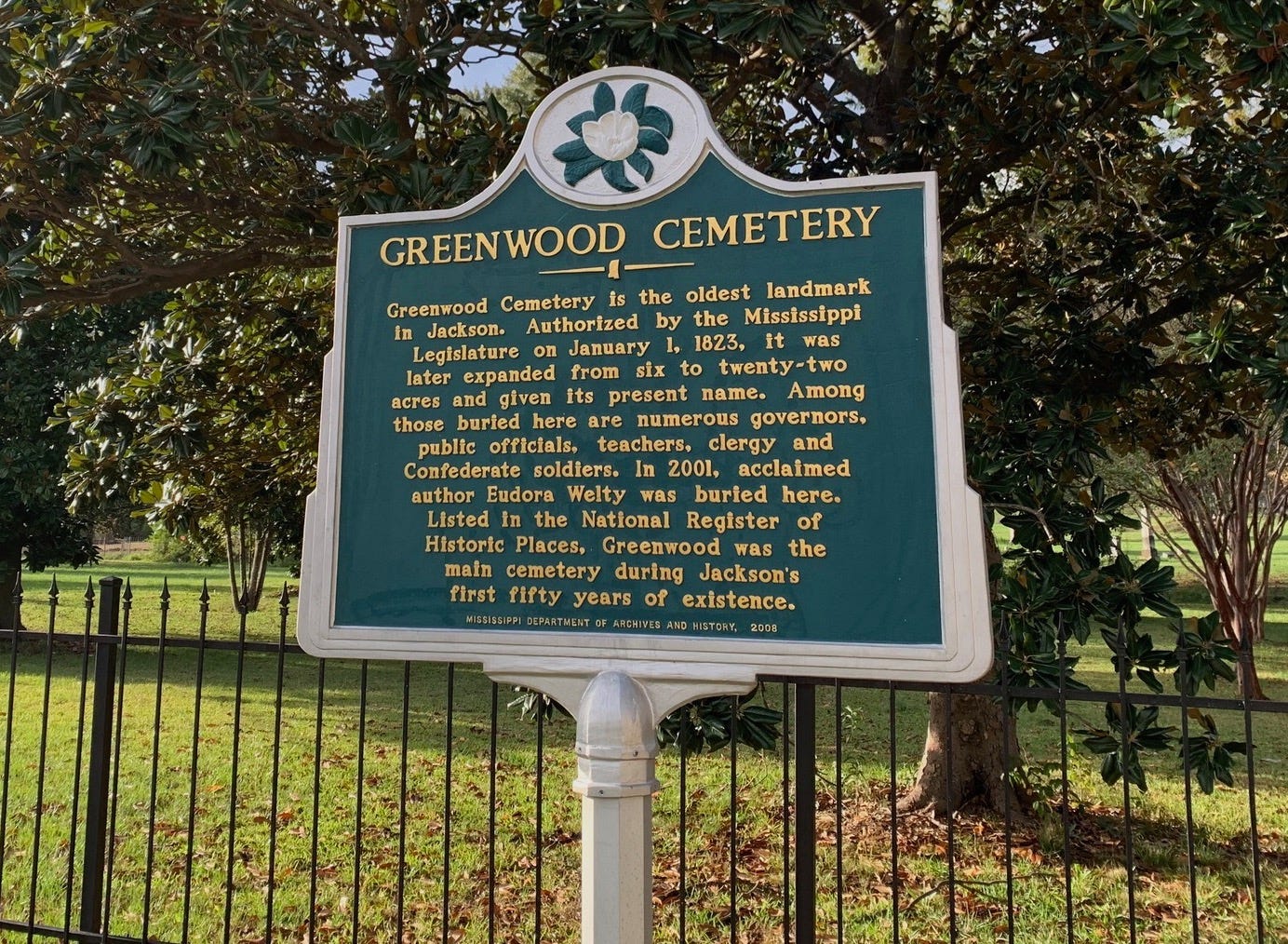
A Glimpse Into Greenwood’s Past
Greenwood Cemetery was established when Jackson itself was in its infancy. Originally a modest piece of land, the cemetery quickly became the final resting place for Jackson’s prominent citizens, reflecting the city’s growth. Surprisingly for its time, Greenwood Cemetery served Jackson's white and black populations from the outset. Although, as with many other public and private graveyards, enslaved people were buried in their owner’s plot. The cemetery’s design and layout otherwise showcase a traditional Southern garden style, with century-old trees, winding paths, and headstones ranging from simple markers to mausoleums. It's a quintessential Southern cemetery with all the historic flair you'd expect—crumbling stone angels and an aura of quiet, graceful decay.
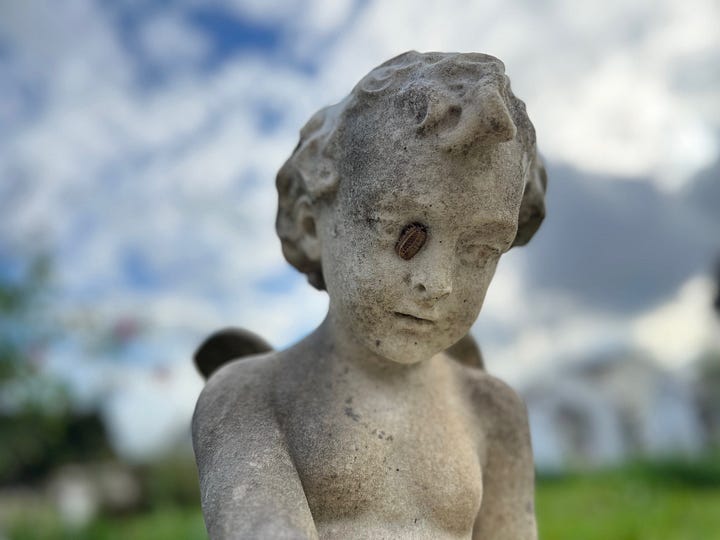
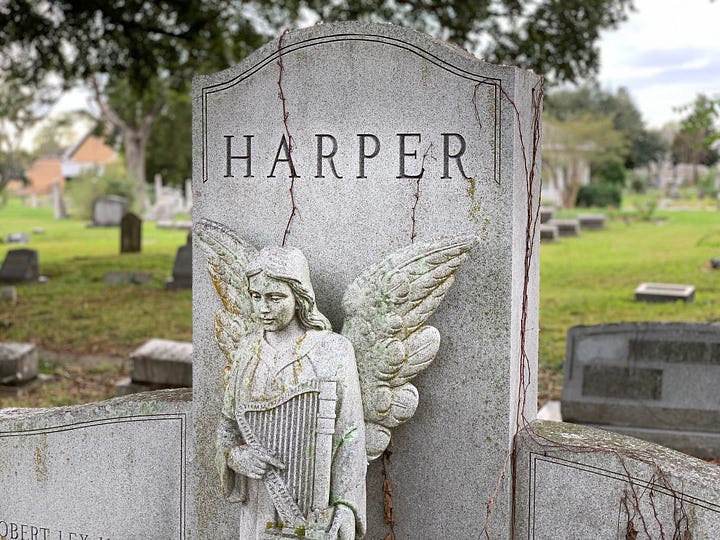

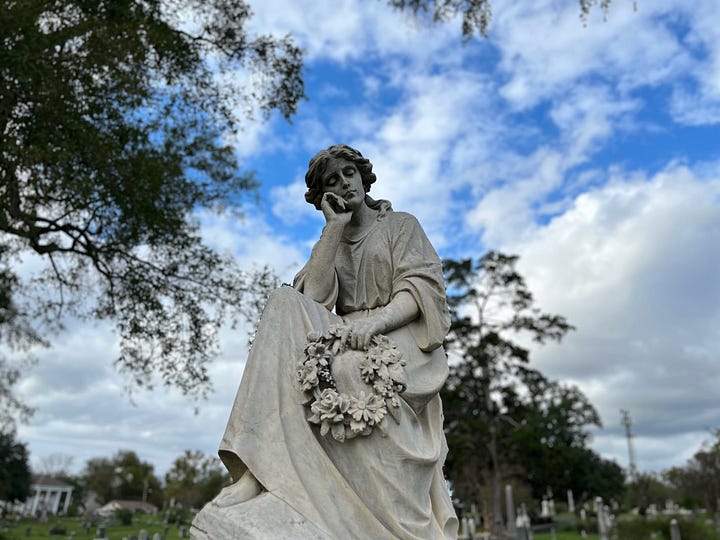
The Present-Day Condition: Beautifully Haunting
Today, Greenwood Cemetery feels like a forgotten world, both in good and challenging ways. On one hand, it’s picturesque—a haven for photographers and history buffs who revel in the eerie beauty of historic graves. On the other, parts of Greenwood have seen better days, with wear and tear from age and elements taking a toll on some graves and monuments. Some areas simply go unmowed and neglected. We were especially concerned about the state of the “summer house,” a small white building along the main path (originally built as a monument for an Episcopal priest who died from yellow fever in 1853). It does, however, offer helpful brochures with a map of the grounds.
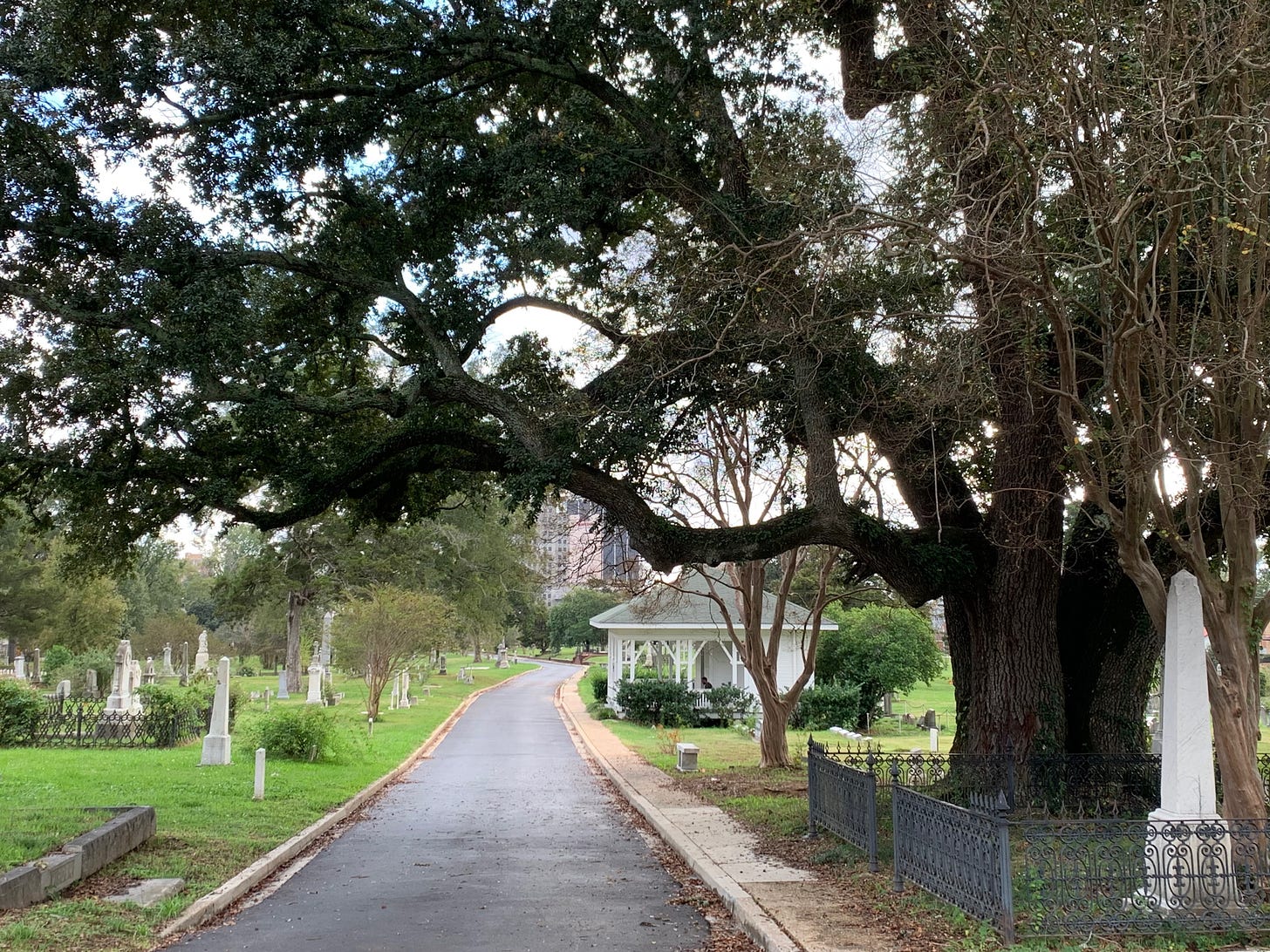
Quite noticeably and probably by no coincidence, the best-kept part of the cemetery is the area where Confederate Civil War soldiers are buried and honored. The bodies of Union soldiers, who were originally buried at the northern tip of the cemetery, were removed from Greenwood Cemetery and reinterred at the Vicksburg National Military Cemetery. The cemetery is maintained by the City of Jackson plus a group of volunteers and history advocates. Preservation efforts are ongoing, but as with many public burial grounds, funding seems to be a challenge.
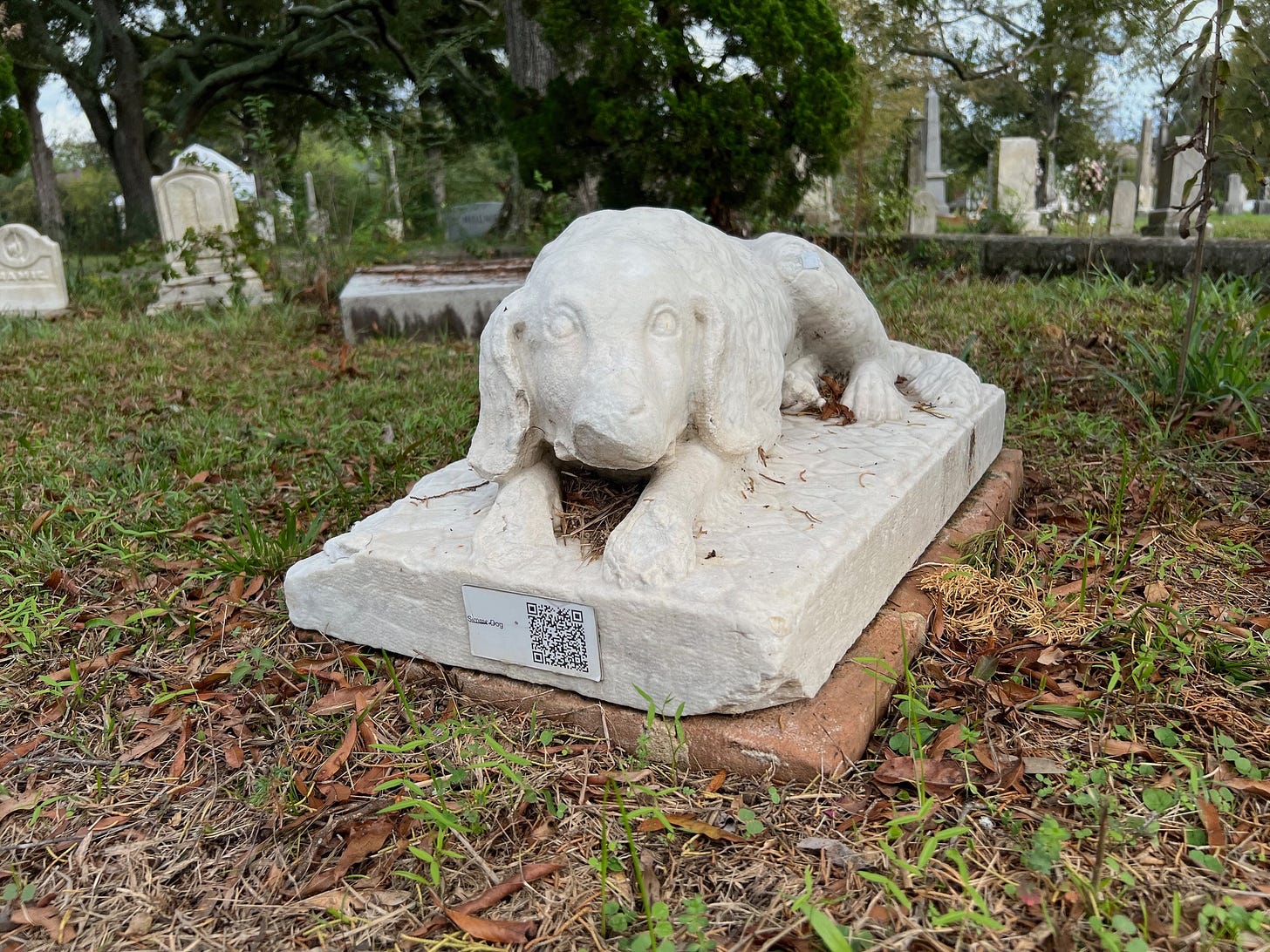
Who’s Who Among the Graves
Greenwood Cemetery holds the remains of several notable Mississippians. Early Mississippi Governors—George Poindexter (1820-22), Abram M. Scott (1832-33), Charles Lynch (1833, 1836-38), Alexander McNutt (1838-42), Albert G. Brown (1844-48), John I. Guion (1851), and William Lewis Sharkey (1865)—are buried at Greenwood Cemetery. In addition to those Governors, State Supreme Court Justices, Jackson Mayors, Episcopal Bishops, a Methodist Bishop, and varied members of Jackson's social, political, religious, and commercial elite are interred at Greenwood.
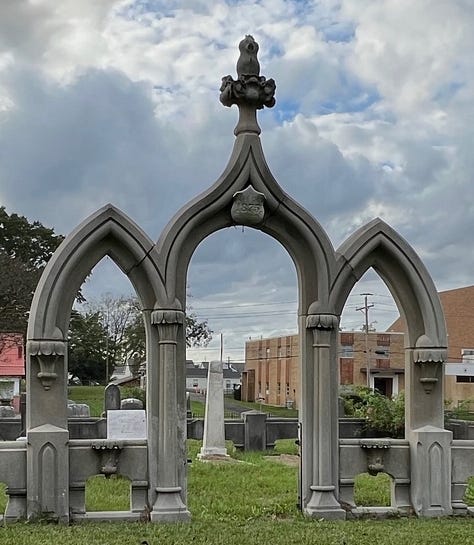
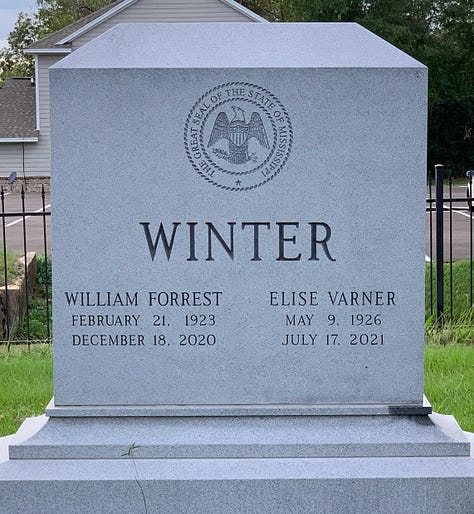
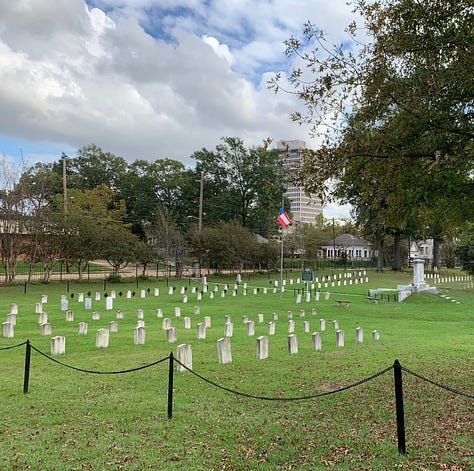
Eudora Welty (1909–2001) was a celebrated American author and photographer from Jackson renowned for her vivid portrayals of Southern life. Welty’s works explored themes of isolation, community, and resilience. Her acclaimed short story collections, such as A Curtain of Green and The Wide Net, along with novels like The Optimist’s Daughter, which won the Pulitzer Prize for Fiction in 1973, helped establish her as a major literary figure.
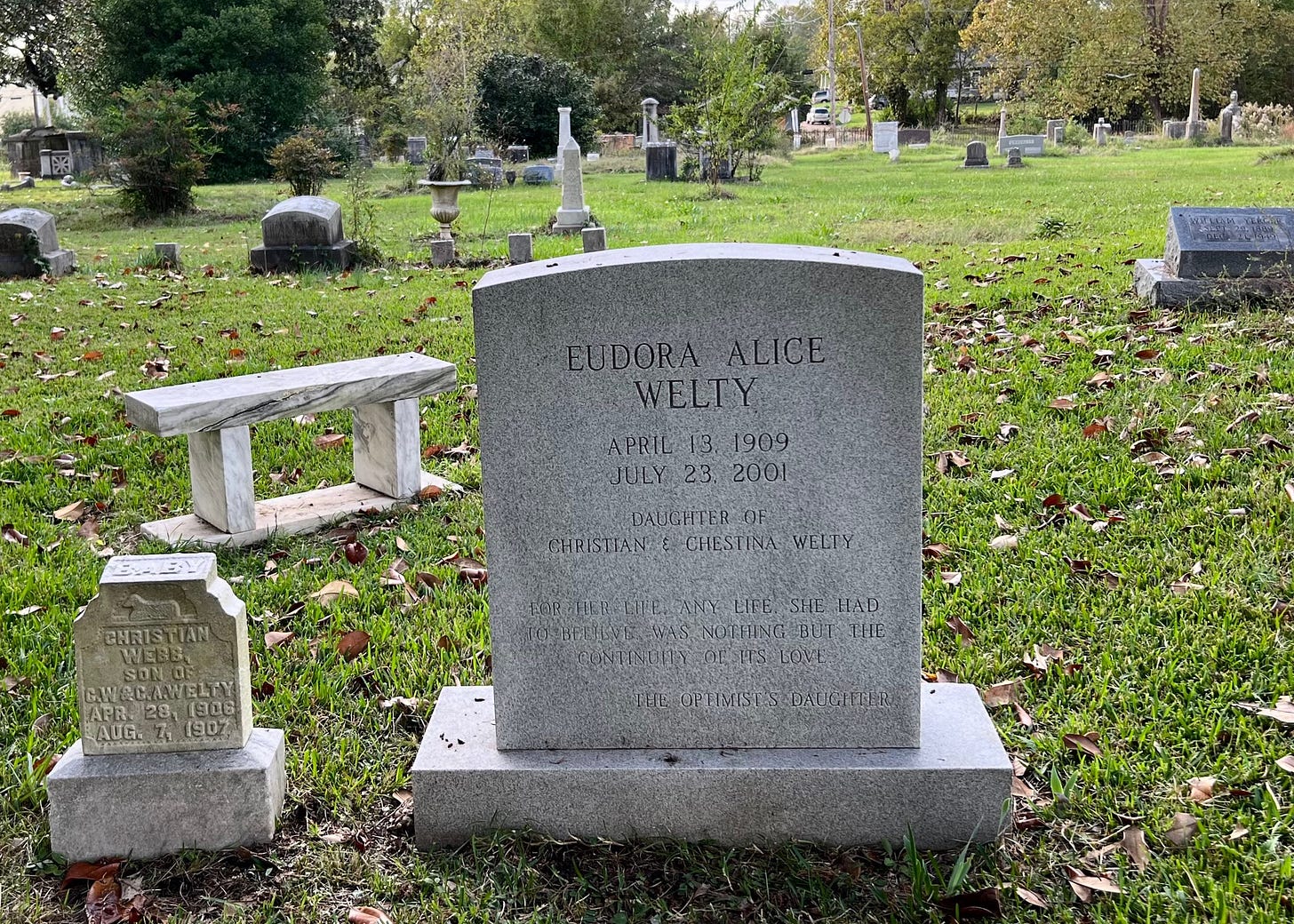
Visiting Greenwood Cemetery
Greenwood Cemetery remains open to the public, a spot of quiet contemplation in an otherwise bustling modern city. Visitors are encouraged to explore respectfully, as this is still an active cemetery. While it's not a formal attraction with guided tours, those who enjoy self-guided walks will find plenty to see and ponder. Remember to take your time—let the quiet paths and stories carved in stone guide you through Jackson’s fascinating history.


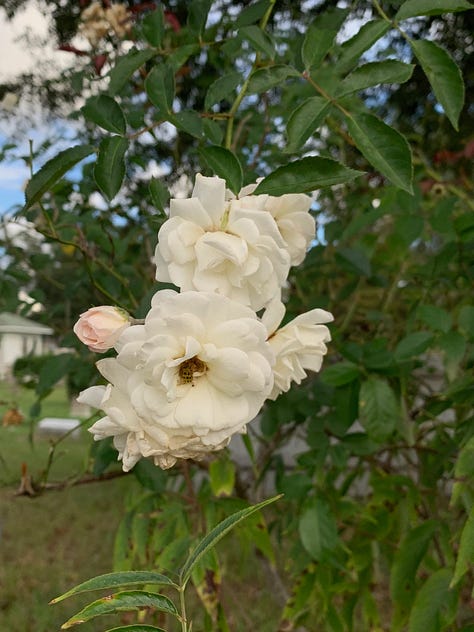
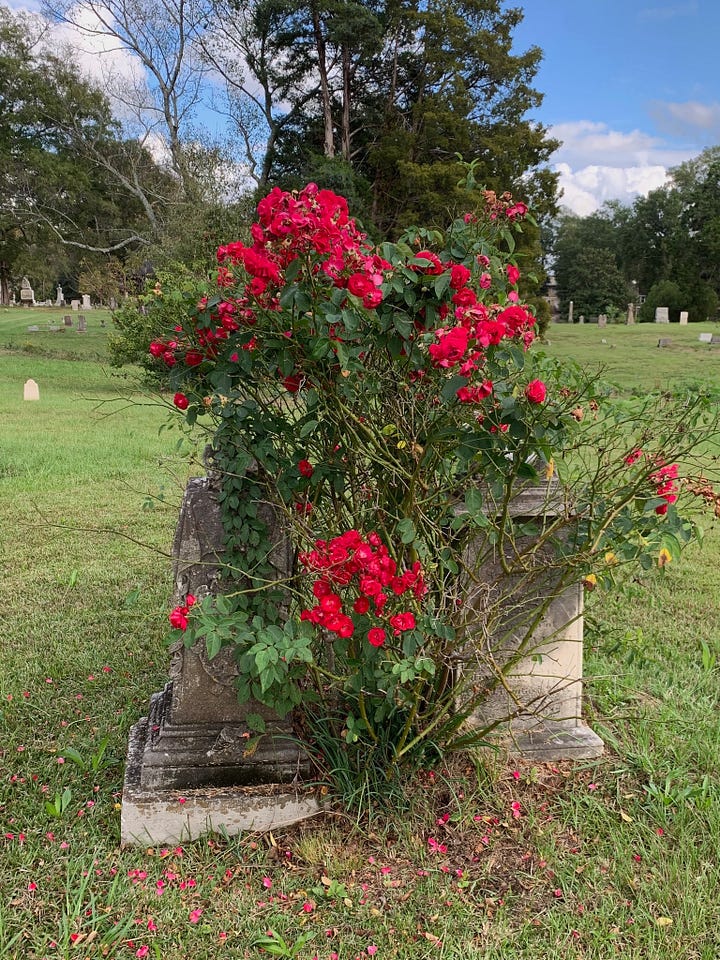

Whether you’re visiting for the history or simply to stroll among the beautiful roses and trees, or the weathered stones, Greenwood Cemetery is a place where Jackson’s past truly comes to life. For those with a love for history and a sense of adventure, it’s a visit well worth your time.







